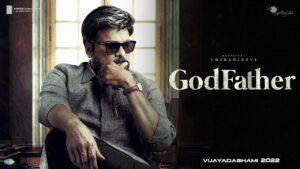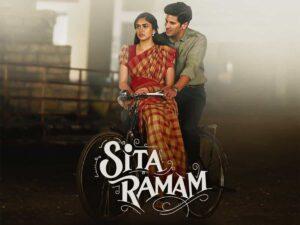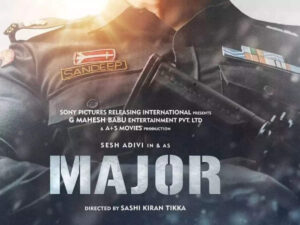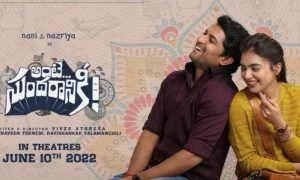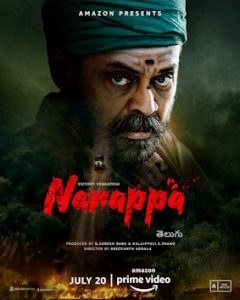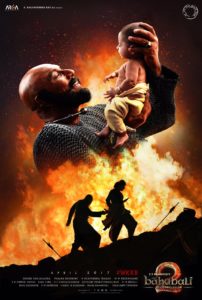
After delivering four consecutive hits, Koratala Siva directed the ill-fated Acharya. Meanwhile, NTR Jr. returns to a solo film after six years, following his collaboration with Rajamouli, and confronts the long-held belief in a post-movie curse. Does their combination after Janatha Garage work its magic again? Let’s find out!
Siva’s strength has always been his writing — creating strong protagonists and embedding meaningful messages in his films. However, with Devara, it seems he’s abandoned his usual logic, delivering a routine story presented in a conventional way. While the protagonist remains powerful, everything else falls apart.
The first half focuses on Devara (NTR Jr.). Alongside the chiefs of neighboring villages, he loots ships carrying weapons for Muruga (Murali Sharma), with Bhaira (Saif Ali Khan) being one of the chiefs. Everything seems fine until Devara realizes their actions aren’t benefiting the villages (or the country), prompting him to stop. This decision sparks conflict, and Devara instills fear in his opponents before going into exile.
Old wine in a new bottle, right? While it’s a routine story, Siva clearly tried to present it differently in the first half. Unfortunately, it falls flat due to a mediocre screenplay and sloppy writing. There’s no clear reason why Devara is considered unbeatable — it feels like Siva simply built the plot around NTR’s image. The entire ship episode and the Ayudha Pooja sequences come off as cringeworthy.
However, the second half is a significant improvement. The screenplay is tighter, and while not all new characters add value, they at least bring some variety. It’s a relief to see moments that move beyond the constant violence, with more purposeful action and a clearer sense of direction than the first half. Overall, it just felt like he made the movie to cater to NTR’s star power.
NTR as Devara is a mixed bag, with his character poorly written. He appears fierce without clear motivation, and his sudden change of heart feels forced. Though he tries to breathe life into the role, his efforts only skim the surface. He’s much better as Vara, where he shines in better-scripted scenes, but I’d still argue he’s been underutilized.
Janhvi’s debut in Telugu films is brief, as she appears for barely 15 minutes. She plays the typical village belle, and while her performance is decent, it feels like a missed opportunity for deeper character development.
Saif Ali Khan delivers a strong performance, but his character is also weakly written. It’s puzzling to see such a talented actor like Shine Tom Chacko wasted. Srikanth and Prakash Raj are decent, but the rest of the cast is alright.
I expected Anirudh’s music to be a major asset, but it turned out to be a disappointment. While the Fear song is catchy, it didn’t fit the movie, and the background score was poorly mixed. Editing by Sreekar Prasad could have been much sharper, especially in the first half — scenes like the 10-minute ship loot could’ve been trimmed to avoid unnecessary cringe. Rathnavelu’s cinematography is solid, effectively showcasing Sabu Cyril’s production design, but at times, it was obvious we were looking at a set.
Story-Screenplay-Direction: 6/10
Technical Aspects: 6.5/10
Verdict: 7/10
PS: Daavudi song isn’t there is the movie.



